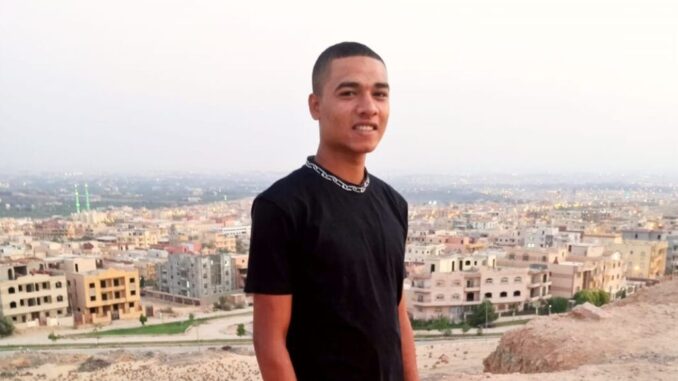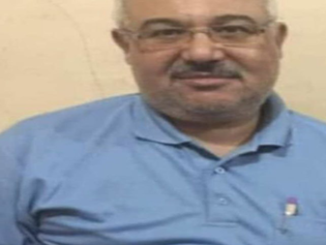
Egyptian security forces have reportedly prevented public commemoration for the Egyptian conscript killed in border shooting that left three Israeli army personnel dead
The Egyptian security services refused to allow holding a commemorative gathering for the Egyptian soldier, Mohamed Salah Ibrahim, who carried out the Egyptian-Israeli border shooting resulting in the death of three Israeli soldiers and the wounding of a fourth, in an exchange of gunfire.
Security forces blocked on Tuesday hundreds of mourners from making their way to the family home of Mohamed Salah, an Egyptian conscript killed on Saturday in an exchange of fire on the Egyptian-Israeli border that led to the death of three Israeli security personnel.
The crowd, which was responding to calls for a commemorative gathering published on Facebook, was prevented from reaching the Salah home in the Cairo neighborhood of Ain Shams by police, who dispersed the crowd, according to the two sources close to Salah’s family.
The family was similarly informed that they should not hold a public commemoration for the deceased conscript and confine any funeral services to a small, secret burial, the sources added. Salah was buried on Monday.
The independent news website Mada Masr quoted two sources close to the soldier’s family as saying, “the agreement between the family and the security authorities was that burial would take place secretly and quickly,” and that the family would postpone the commemorative gathering until Tuesday “so the number of attendees would be reduced.” But the security authorities have since informed the family of their refusal to hold a commemorative gathering.
The site stated that hundreds of Egyptians went to Salah’s house in the Ain Shams area in the capital, Cairo, yesterday to attend the funeral “but Ain Shams investigation forces dispersed them.”
Saturday’s border shooting and Salah’s death have proven to be a lightning rod in Egyptian-Israeli affairs given the public outpouring of support for Salah and Egypt’s downgraded position as regional interlocutor with Israel in recent years, even as exactly what happened in the incident remains unclear.
Salah has been described in state-aligned media as “a hero,” after the Egyptian Armed Forces spokesperson said on Saturday that he was killed while in pursuit of drug smugglers operating on the Egyptian border.
Israeli authorities cast suspicion on Salah’s motives for entering Israeli-held territory in public statements which described him as a “terrorist.”
Egypt has been keen to accommodate the Israeli side at the highest level since the incident, an informed security source speaking on condition of anonymity told Mada Masr, as Saturday’s events constitute a “major embarrassment” to Egypt.
Egyptian and Israeli authorities have begun to conduct joint investigations into what caused Saturday’s events — with President Abdel Fattah al-Sisi and Prime Minister Benjamin Netanyahu holding a call Tuesday to establish cooperation. A number of diplomatic and security sources told Mada Masr on condition of anonymity that Egyptian authorities are working hard behind the scenes to smooth over the incident in the interest of preserving cooperation between the two governments.
These efforts have been complicated by the significant anti-Israeli sentiment that has appeared online, with many on social media in Egypt and the region have adopted Salah as an icon, describing his crossing the border on Saturday as an act of resistance against the Israeli occupation of Palestine.
In light of this tension, authorities gave instructions to Salah’s family that only a burial should be held for the deceased conscript, according to the first family source, while the second source said that security agencies and the family agreed to conduct the burial quickly and secretly, postponing a commemorative gathering until the following day “so that there’d be fewer people.” However, the second source said, authorities later refused the gathering altogether.
Salah’s brother and uncle were among the very few to attend the burial in the village of Ammar, Qalyubiya, according to the source, who said the two men had spent the 48 hours prior with security personnel who escorted them from their homes on Saturday in the wake of Salah’s death.
In the wake of Saturday’s events, friends and members of Salah’s family in the vicinity of his Ain Shams home were questioned by Egyptian security personnel regarding his religious and political inclinations, according to both domestic and international outlets.
Citing diplomatic sources, Mada Masr said that Israel appreciates Egypt’s cooperation and that what happened will not cause a crisis between the two countries, but will result in a review of security measures on the border.



